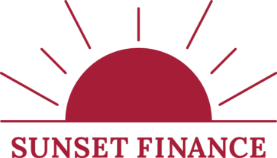Merriam-Webster defines a loan as “money lent at interest.” While there are numerous reasons you may get a loan, they all generally fit into one of the following categories: Installment loans, Check Advance or PayDay loans, Title loans, and Credit Cards. When you need to borrow money, you want to make sound decisions. To help you make the best choice for your situation, read on to discover the difference and the types of options that are available to you.
Installment Loans
An
installment loan is a loan you pay back over time, with a specified term and fixed payments. The principal balances on installment accounts decrease every time a payment is made and can be paid out through regularly scheduled payments. Common
installment loans you may be familiar with include mortgages, car loans, student loans, and personal installment loans. While the first three are for a specified purchase, a
personal installment loan provides money to the borrower (you) and can be used at your discretion.
Common reasons consumers get personal installment loans are home remodeling, car repairs, medical and dental expenses, vacations, seasonal purchases like back-to-school or holidays, and to help build their credit. In the end, you can use the money how you see fit.
Live Loan Checks
The US General Accounting Office or GAO states “
Live loan checks” are preapproved loans extended to potential borrowers by sending them unsolicited, negotiable checks. When recipients sign, then subsequently cash or deposit the checks, they obtain the loans.” Sometimes these are just called “live checks,” and you may have received these in the mail from time to time. If you receive one and have questions you can contact the issuer. They may be able to offer you a different loan amount based on your needs and qualifications. Cashing or depositing a live check will result in a loan with the issuer of the check.
Check Advance and Payday Loans
Investopedia defines these as “a type of short-term borrowing where a lender will extend high-interest credit based on a borrower’s income….” They are generally expected to be paid back by your next payday in a lump sum. Because they are unsecured, the interest rate is typically higher than installment loans secured with collateral. Additionally, providers of these loans may not report to the major credit bureaus, which may defeat your purpose if you are trying to build or rebuild credit. Since these are intended to be short-term loans, failure to pay off the loan as originally intended and extending the loan may lead to high fees and additional interest payments. This, in turn, could lead to “larger financial problems” if you get stuck in a payday loan cycle, according to Credit.com.
Title Loans
As with check advance loans, title loans or title pawns often do not require a credit check. Instead, they place a lien on your vehicle and you must surrender the title to the lender for the duration of the loan. Again, they may not report to the major credit bureaus, and making on-time payments will not help your credit score. If the payment schedule is not adhered to, the vehicle may be repossessed. Additional fees may apply if the lender rewrites the loan for an extended amount of time.
Credit Cards
Credit cards or open-ended loans are also called
revolving lines of credit. It’s a loan which can be used up to a pre-approved amount, it can be used over and over again as long as you have not reached the credit limit, and subsequent payments must be made. The payments will fluctuate based on the balance, with a minimum payment that can be made. Both store-branded and bank-issued credit cards generally report to the major credit bureaus, so making on-time payments can help your credit. With credit cards, if you are only making the minimum payment, you are paying mostly interest rather than principle, and it will take a significant amount of time to pay off the balance. Payments are not set up like personal installment loans with equal, set payments over a specified term. The payment due is usually based on your current balance, and carrying a balance leads to additional costs in interest. A HELOC, or home equity line of credit, is another type of open-ended loan and is based on the amount of equity you have in your home.
Additional Considerations
There are some others factors which are important to be aware of when getting a loan. While annual percentage rates or
APRs are good for measuring the interest of long-term loans like automobile loans or mortgages, their usefulness often isn’t the best measure of determining whether a short-term loan is best for you. For short-term loans, the most important factor is whether you can manage the payment and work it effectively into your budget.
Some loans may offer consumer
credit insurance or CCI as well. Situations such as unemployment, sickness, accidents, and death can be covered by CCI. It is important to note that pending insurance claims do not absolve a customer from making their scheduled payments and to protect your credit rating, your regular payments should be made until any claims are resolved.
Lastly, some companies may offer additional products such as telemedicine, prescription discount cards, or auto-club memberships. These
ancillary products can offer customers access to helpful resources which may be beneficial down the road.
In Summary
The types of loans listed are the most widely used
personal loans, but the list is not all-inclusive. Different states and different companies have different laws, policies, and philosophies on lending. What has been laid out here is only a basic breakdown of some of the most common types of credit. A certain company, in a certain state, may use these types of credit transactions in a different manner than laid out above.
Personal loans are relatively easy to access but are not created equal. Finance companies will base your installment loan on the amount you’re able to pay back each month, and the monthly payment amount will stay the same for the term of the loan. Finance companies may report your payment history to the major credit bureaus. Over time, if your payments are paid as agreed, it can actually improve your credit score. Another huge benefit of using installment loans is having smaller, more easily budgeted payments over a longer term while reducing the amount owed.
5 Steps to a Better Personal Loan
If you decide you would like to take out a personal loan, Sunset Finance can help. We’ve created a step-by-step list called
5 Steps to a Better Personal Loan in order to help you prepare to qualify for a personal loan. Download it today for a better loan tomorrow.


